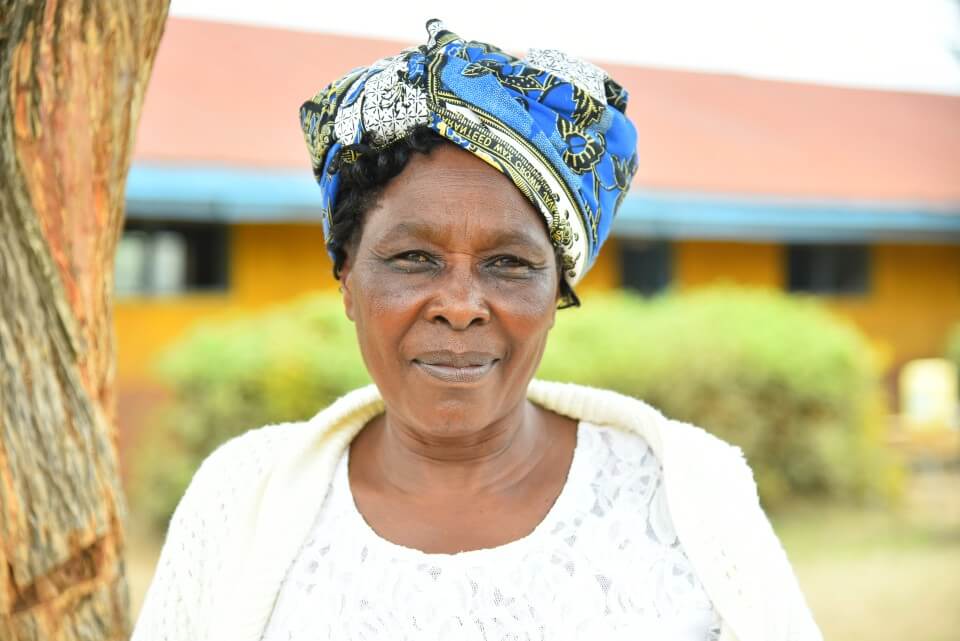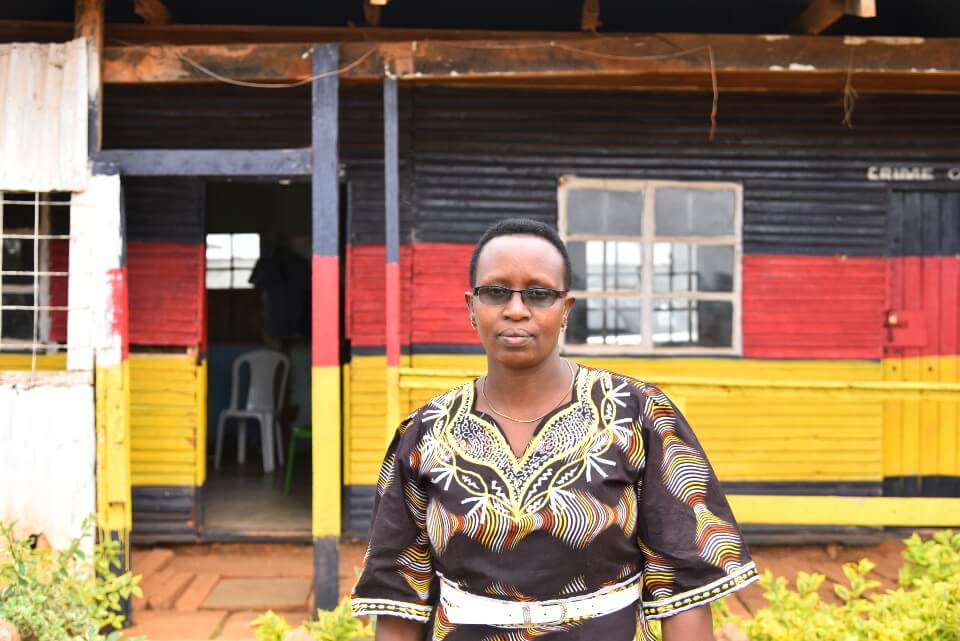Community leaders rise to protect vulnerable women and girls during Kenya's pandemic
Date:

Sixty-year-old Beatrice Kimani is a teacher and a counsellor and community leader in Kenya’s Uasin Gishu County. As COVID-19 hit Kenya in March 2020, schools closed and Beatrice became a focal point for the community, coordinating a network of information during the pandemic to protect vulnerable adolescents.
“When we first saw COVID-19 on the news, we thought it was a foreign problem. But when it came to Kenya people began to panic. People here had to weigh up spending 50 shillings [less than USD 1] for a mask, or for food. It affected our children, drug use was rising, risky sexual behaviour increased. Getting masks and educating people with mental health issues was also challenging. There was tension, people not originally from the area took off, as it is an area often associated with conflict.”
In Kenya, the effects of the COVID-19 lockdown have focused around a loss of livelihoods, and a rise sexual and gender-based violence: 35% of crimes reported in the first month of lockdown were classified as sexual offences. Over the course of 2020, Kenya’s national helpline for GBV services recorded over 5,000 cases – a five-fold increase from the previous year.
Community Protector
Beatrice was alerted to a defilement [sexual intercourse with a child under the age of 18 years old, whether or not the child consents] case early in the lockdown. It sparked her into action, identifying a large group of adolescent girls.
“Truck drivers, restricted by border closure with Uganda, settled in Burnt Forest and this increased commercial sex work. Looking at behaviour is important in crisis and I was monitoring a group of young girls in the neighbourhood. They were congregating in an abandoned property. I spoke to some of their parents, but I found it very hard. Some weren’t interested. I even went door to door to warn families about what was happening. I spoke to around 72 girls. I was collecting them in groups and speaking to them regularly, using the school premises as a safe space. I did this every Friday for seven months.
Two girls [both 14-15 years] became pregnant and they have now dropped out of school. There was a lot of stigma from the peers for being mothers so young, so they stayed at home.
Apart from the two new mothers, I’m relieved that the girls I was monitoring returned back to school this year. I’m also pleased that justice is being carried out for the young girl who was raped. The perpetrator is in custody and awaiting sentencing”.
Collaboration approach
Beatrice is one of the local ‘network leaders’ who during the pandemic received training on early warning and early response mechanisms as part of the “Gender Rapid Response Initiative for Social Cohesion in Uasin Gishu County”, supported by UN Women and the Government of Finland between June and December 2020.
Implemented by Kenyan grass-roots women-led organization Rural Women Peace Link (RWPL), the project was designed based on a vulnerability survey among the county’s poorest households.
A core feature of RWPL’s work, and this project, is empowering and mobilizing community members – who have a deeper understanding and insight of the needs on the ground – to become agents of change. After receiving training, Beatrice and the other network leaders went on to reach a some 1,200 women and girls to help them develop ways to mitigate the impact of COVID-19, gender-based violence and domestic conflicts.

Jennifer Rono, 40 years old, lives in Eldoret, the capital of Uasin Gishu County. She is another network leader, bringing villages together to speak to their young girls about sexual and reproductive health and rights, something that can be a taboo. She too noticed an increase in commercial sex work, gender-based violence, defilement cases and early pregnancies in the county.
“Many parents have difficulty talking about some of these sensitive issues. For example, in my culture you cannot talk about sex with someone of a different gender or age group. I realised women are being forced into situations because they don’t have their own autonomy, they’re not empowered.”
“This project in Uasin Gishu County compliments our broader work in Kenya both geographically and thematically,” says Mary Wanjiru, UN Women Programme Specialist on Women, Peace and Security. “Community sensitization, mobilization and involvement of women in peace-building initiatives are powerful tools to reduce conflict and raise awareness in crises. It is something that needs to be employed during the recovery phase of this pandemic as we approach election period, a known trigger point for violence in the area.”